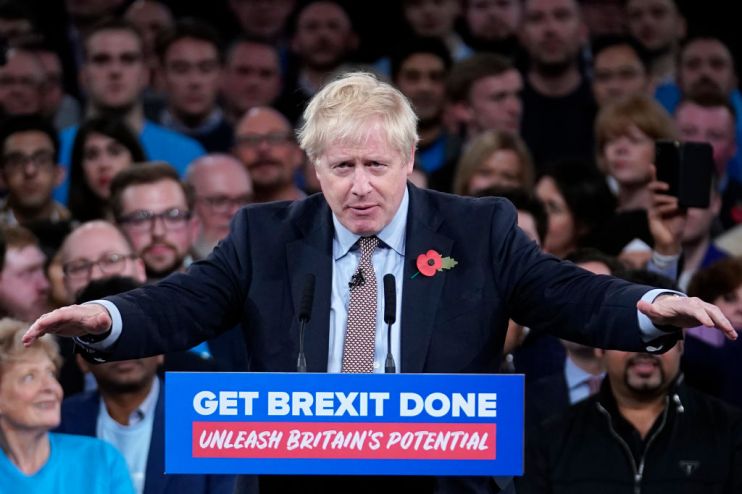Did the BBC conspire to make Boris look better on TV? No.

During my Masters degree in journalism I spent some time working for the BBC’s Daily Politics, now known as Politics Live.
The show was produced and broadcast from the BBC’s Westminster studios in Millbank, and every day it was all hands on deck as a team of editors, producers, guest-bookers, script writers, presenters and technical crew pulled together an hour of live output.
After a couple of weeks working on the show, the editor came over to me and said: “Do you see how collaborative live broadcasting is?”
A faultless 60 minutes required everyone to know their role and execute it as part of a ballet, from the intern who met guests at reception to the production crew in the gallery. The editor went on: “That’s why I get so annoyed when people allege a deliberate bias in our output — because for that to be the case the conspiracy would have to be so large — we’d all have to be in on it.”
That editor was Robbie Gibb, a BBC veteran who went on to be Theresa May’s head of communications — something which didn’t go unnoticed by the conspiracy theorists.
While the BBC probably has a soft-left cultural group-think, which can manifest itself in a form of bias, the idea that agents within it deliberately manipulate news output to favour one party or politicians over another is for the birds.
And yet a production error that showed Boris Johnson laying a wreath from a few years ago (instead of last Sunday’s actual wreath-laying, which he fudged up) sent left-wing activists into a meltdown.
Jeremy Corbyn’s cheerleaders avoided making detailed allegations (which would have required making claims about where in the BBC chain of command the conspiracy to protect Johnson’s image first appeared) and instead pumped out lines such as “how convenient” and “isn’t it interesting…” — when in fact the human error behind airing the wrong footage is, if anything, inconvenient and uninteresting.
Bargain booze
Hampshire Police are urging people to be on the lookout for “high quality wine at a bargain price”. Aren’t we all?
The advice came after thieves snatched £70k worth of wine from the Lime Wood Hotel in the New Forest, which is owned by billionaire chemicals tycoon Sir Jim Ratcliffe.
Masked men made off with more than 80 bottles from the cellar, and while the hotel won’t confirm exactly what was taken, the list features such gems as a £10,000 Romanée-Conti Grand Cru Pinot Noir.
Bad news for billionaires
Spears, a magazine for “billionaires, centi-millionaires and the merely very well-off” last night hosted its Wealth Management Awards in the City.
The mag’s founder, William Cash, lamented that “the war on wealth is probably only going to get worse”, noting that Britain’s 54 billionaires saw their fortunes fall by over £16bn last year.
On a lighter note, he hailed the “steady flow of £250m-plus London divorces” leading to a “golden age” for family lawyers and private client advisers.
Screen review
I’m going to stray into the territory of our Life and Style pages and offer up two film reviews.
Firstly, avoid The Laundromat. Steven Soderbergh’s film about the leak of 11m files from Panama-based law firm Mossack Fonseca is a huge disappointment. Instead of a hard-hitting account of global money-laundering and corruption, the film is a low-grade rant.
Gary Oldman and Antonia Banderas play the two lawyers, Mossack and Fonseca, but they come across as a camp pantomime double-act. Not even a stellar cast keeps this tedious and irritating film afloat.
In contrast, Follow The Money is a beautiful, uplifting documentary by three English filmmakers who set out to track the journey of a single $10 bill in circulation over the course of a month.
Starting in the geographic centre of the US, the bill travels over 6,000 miles and passes through the hands of dozens of ordinary Americans — all of whom have a story to tell or some wisdom to impart. This original film is full of memorable encounters.
Main image: Getty
